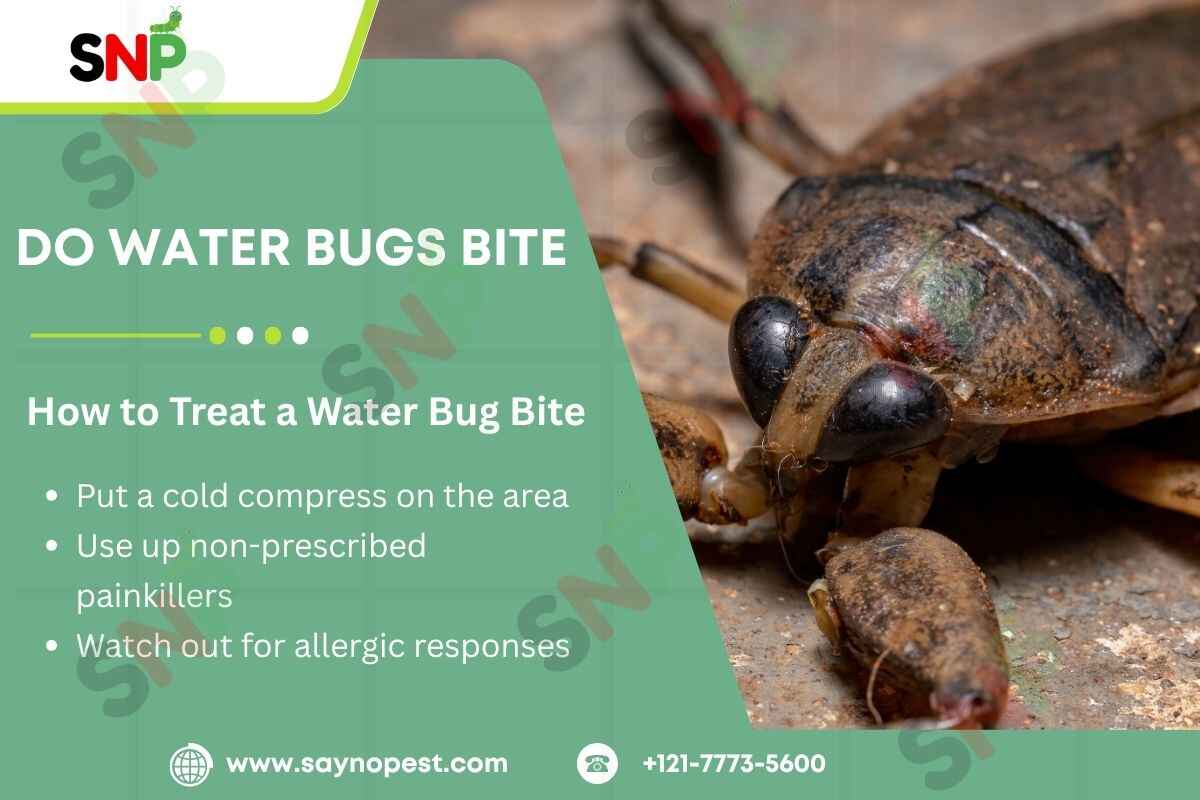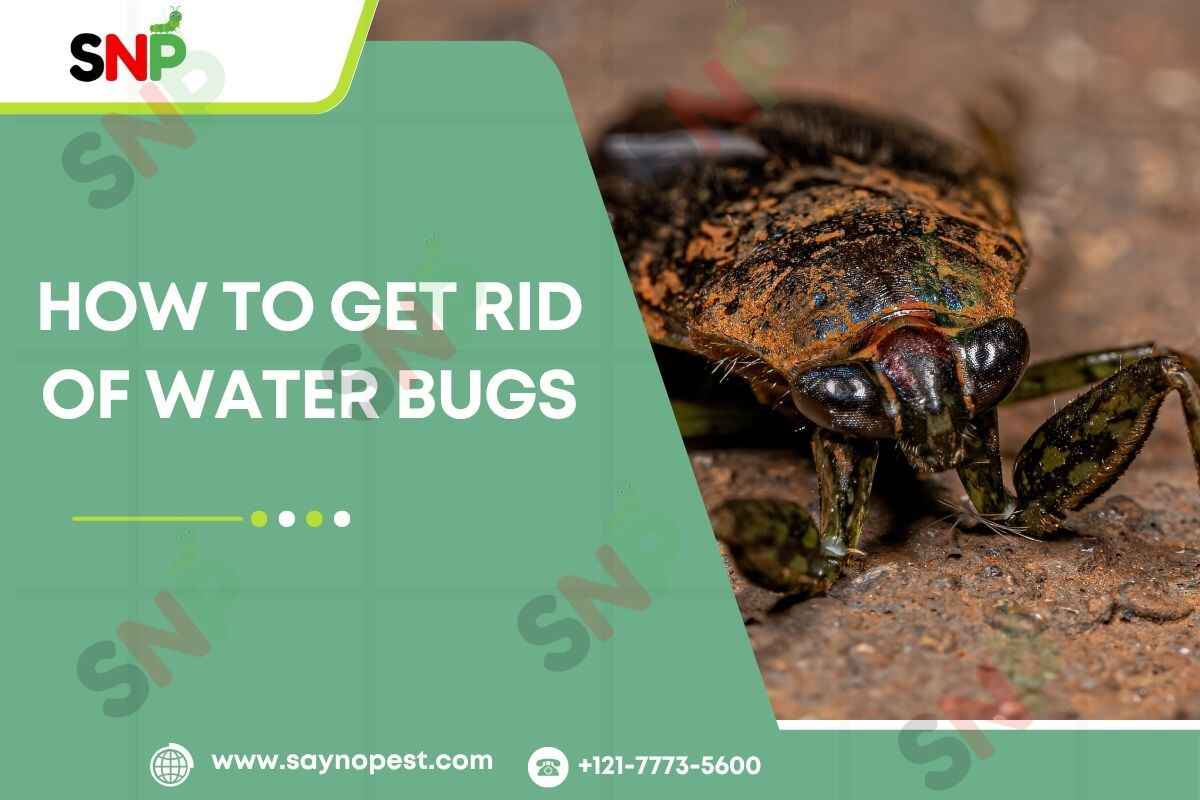If you’re asking yourself the question of do water bugs bite, then, obviously, you have a lot of company. Water bugs, aquatic insects and their interactions with humans are something that many Americans have experienced, and the scary look of water bugs is usually the first reason why anyone gets worried about their safety. In this piece, we are going to figure out the ins and outs of the water bug world, tackle issues like Are Water Bugs Poisonous, and explain the procedure of getting bitten. No matter if you are a homeowner, a swimmer, or just an outstanding, early inquisitive, here are some of the most significant aspects of water bugs and their bites for you.

What Are Water Bugs?
Water bugs, being giant water insects, are animals that live in the United States primarily in lakes and ponds of slow or stagnant water. The biggest of the water bugs, for instance, the giant water bug, also called a “toe-biter,” can grow to 4 inches in the most menacing scenario. Conversely, there also exist tiny bugs that inhabit water, like backswimmers and water boatmen, which usually occur in pool water in backyard pools.
It’s a myth that water bugs are roaches. They have wide, oval bodies and their front legs are very powerful, which helps them to catch their prey powerfully, and they swim like fish. Most of the time, that is, during the night, both the small water bugs and their big relatives act as nocturnal predators, the prey being fish, tadpoles, and other creatures that live in the water.
Do Water Bugs Bite?
The answer is yes-do water bugs bite humans? Absolutely, but only when threatened or handled. The giant water bug, in particular, is infamous for its painful bite. While the smallest of water bugs, such as backswimmers, can also bite, the pain caused by it is not that severe.
If a water bug bites, it does not follow the way a mosquito or a spider bites, but the former uses a pumpkin-shaped rostrum to break through the skin while injecting the prey with digestive enzymes. After it has happened, you will feel a sharp and unbearable pain, even after several hours. Remember, the bug only attack when someone confined or handled, since, in general, small water bugs and their relatives will not go out of their way to cause problems for people.
Are Water Bugs Poisonous?
The question that comes up most often is whether water bugs are poisonous. Water bugs do inject a poison-tinged saliva into their prey, which leads to their paralysis, and then the bugs are eaten. On the other hand, how about humans, are water bugs poisonous in a dangerous way? Not at all. Although their bite can be excruciatingly painful, the venom is not one of the major causes of death amongst people. Rarely will the worst you will experience be signs of local pain, swelling, and some tingling or numbness in a particular area. In some, very few cases, these are allergic signs of breathing that are difficult or a breakout of hives. In these cases, medical attention is critical.
Even though it may be true that do water bugs bite and inject venom, the response to are water bugs poisonous is that they are not dangerous in the way snakes or spiders can be.

How to Treat a Water Bug Bite
When water bug bite, the following steps should taken to treat the water bug bite:
- Put a cold compress on the area: This reduces pain and swelling.
- Use up non-prescribed painkillers: Ibuprofen and acetaminophen are pain relievers which can used to alleviate discomfort.
- Watch out for allergic responses: If you have shortness of breath, skin rash, and you find local swelling getting bigger, than don’t hesitate to seek help from a doctor.
Most bites from small water bugs and their larger relatives clear up within a few hours, although a sensation of numbness or tingling may persist for up to five hours. Don’t scratch the bite, as this can lead to more infection.
Conclusion
Is it true do water bugs bite? First of all, the direct answer should be no. The pain from a water bug bite is very disturbing but not severe. Are water bug poisonous? Their toxin is used for the prey, not humans, so there is no need to worry. The interaction with a water bug sting will be nothing more than temporary pain and a bit of swelling, and usually, simple first aid will be enough. Keep in mind that both small and large water bugs shun people, so the most effective method is to leave them alone and keep your swimming areas clean.
Figuring out the conditions of whether water bugs bite, if water bugs are poisonous, and if a water bug bite happens to you, you can venture outdoors with the utmost assurance. If small water bugs and their bigger versions pay too much attention to you, it is a wise option to get in touch with the professionals of a reputed pest control service and enjoy a trouble-free life at home.



